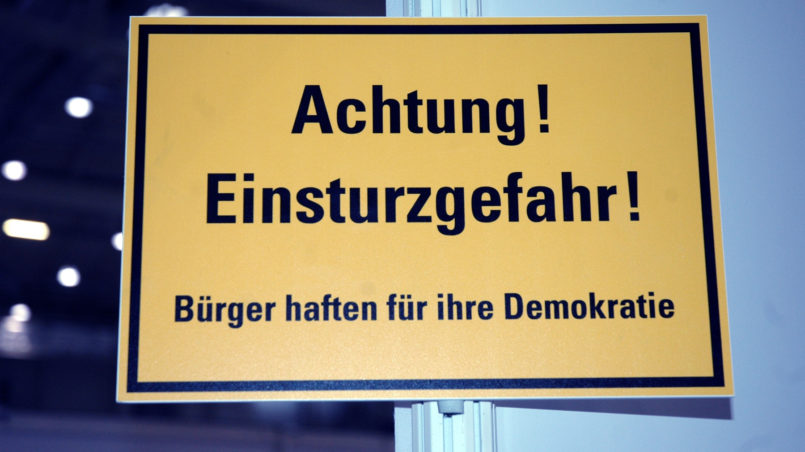Renzi and Cameron: A Shame for Courageous Democrats

I will miss Matteo Renzi as much as David Cameron. Just when I was beginning to appreciate them for their courage as regards fundamental referendums, this courage cost them their office. Direct democracy unfortunately loses with them.
In my opinion, it is a mistake to judge the voting behaviour of people from other countries from afar. I am either one of those who are eligible to vote and passionately discuss issues with others and those who think differently or, as an outsider, I accept the will of a people – whether I like it or not.
Because of this attitude, I find it difficult to judge the Italian constitutional referendum and the referendum on the exit of the British from the EU. The people will have had their reasons and for me, as a supporter of direct democracy, the most important point is: the voters themselves have to bear responsibility for their decision in any case.
It is regrettable that, when voters wanted to punish a crippled, paralysed and undemocratic system, they actually punished precisely those politicians who would have wanted to change it.
David Cameron wanted to break Great Britain’s inner blockades against the EU. With a clear „yes“, he would have gained both freedom to negotiate and support. It was a brave move to allow his EU-sceptic Brits to vote and to try and persuade them with arguments instead of deciding on EU policy in Downing Street, as his predecessors did. As such, he put his political future on the line – with the referendum that he wanted. Not with EU policy per se.
It was similar with Matteo Renzi: in terms of policy, his constitutional reform may have been disputed, rightly or wrongly. In order to be workable, the right step would have been to disempower the senate; but instead of the senate, it would have been better if he had presented another supervisory authority, ideally instruments of direct democracy.
However, if the analysts’ view that many voters only wanted to punish the system is correct, in actual fact they only punished the individual who wanted to change the system and involve the population thereby.
What can politicians learn from this? If they do not even ask the people, the response is protest. Or do they follow Angela Merkel and provide the people with facts, remain silent and wait as, by the time of the next election, everything will already be forgotten?
The consequences of the failure of David Cameron and Matteo Renzi are a setback for direct democracy.
But in this manner we are sparing the people from themselves and preventing a positive development, namely the assumption of responsibility.
If the voters feel that nobody wants to „protect“ them from the consequences of their decisions, then a development occurs which produces interested and committed voters who are able to make decisions, which will make them immune to the trend which we today want to protect them from by means of paternalism: a population which is politically mature and far-sighted as a result of direct democracy is immune to populism.
Translation German-English: Donna Stockenhuber
Credits
| Image | Title | Author | License |
|---|---|---|---|
 |
Attention! Danger of collapse! Citizens are responsible for their democracy! | Mehr Demokratie | CC BY-SA 2.0 |
